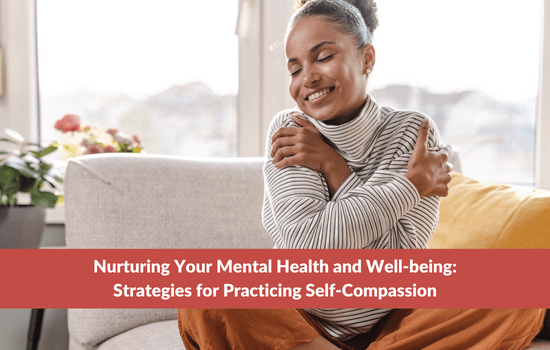Self-compassion is crucial to our overall well-being and mental health. We must focus on strategies as simple as using positive self-talk to reinforce self-compassion.
The Power Within: Transformative Paths to Boosting Mental Health with Self-Compassion
"Unlike self-criticism, which asks if you're good enough, self-compassion asks what's good for you? It taps into your inner desire to be healthy and happy. If you care about yourself, you'll do what you need to do in order to learn and grow. Valuing ourselves in a deep way makes us want to make choices that lead to well-being." - Kristen Neff, Ph.D., researcher and author of Self-Compassion
 You Are Your Greatest Caregiver
You Are Your Greatest Caregiver
Without a doubt, you are your best caregiver and your most precious resource.
Self-awareness and understanding what makes you tick is well worth the investment. As you become more self-aware, it becomes easier to focus on yourself. Self-compassion is about caring for yourself, leading to good mental health and overall well-being.
When practising self-compassion, we establish what Margarita Tartakovsky, M.S., describes as "a secure base to deal with challenges." That base helps us grow and become more resilient, leading us to more fulfilled lives. Here are some strategies to help you concentrate on what will benefit you.
Mastering Strategies for Self-Compassion Practice
Practise these strategies to reinforce your self-compassion and support mental health.
- Practice mindfulness through cultivating awareness of your thoughts and emotions without judgment, promoting self-understanding.
- Use positive self-talk by replacing negative self-talk with affirming and compassionate statements to foster a kinder inner dialogue.
- Set realistic expectations, acknowledge your limitations, and set achievable goals, reducing self-imposed stress and promoting self-compassion.
- Prioritize self-care and prioritize activities that bring joy and relaxation, prioritizing your mental and emotional well-being.
- Avoid perfectionism by learning from mistakes and viewing them as opportunities for growth rather than personal failures, embracing a self-compassionate perspective.
- Establish boundaries through setting healthy boundaries to protect your mental health and ensure a balanced approach to life's demands.
- Celebrate achievements by acknowledging and celebrating small and large ones, fostering a positive self-image.
- Seek support by reaching out to friends, family, or professionals for support when needed, recognizing the strength in asking for help.
- Self-reflection regularly on your thoughts and emotions, fostering self-awareness and understanding.
- Practice deep, mindful breathing to center yourself in moments of stress, promoting emotional regulation and self-compassion.
Reflect on how you take care of yourself and focus on your self-care. If you are not practising self-compassion, it will negatively affect your mental health and overall wellbeing. Marshall Connects offers Emotional Intelligence Assessments and Coaching to enhance skill development in all areas, including self-management strategies like positive self-talk to improve overall productivity.
This article was originally published on April 29, 2017, and has been updated (January 2024).
More Motivational Reads Here »
How Emotionally Intelligent Are You?
Sign up for Linda’s monthly tips to build your Emotional Intelligence and reduce Emotional Hijacking!

















